Annual Report 2023: HIIT Fellows
Please find below presentations of the HIIT Postdoctoral Fellows and HIIT Research Fellows.
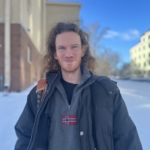
Florian Adriaens
HIIT Postdoctoral Fellow
Florian Adriaens received his PhD degree in 2020 at Ghent University as a member of the Artificial Intelligence & Data Analytics Group led by Prof. Tijl De Bie, and co-supervised by Prof. Jefrey Lijffijt. After graduating he worked for two years as a postdoctoral researcher in KTH University in the data mining group of Prof. Aristides Gionis. Since January 2023 Florian started working as a HIIT postdoctoral fellow under the supervision of Prof. Nikolaj Tatti.
His broad research interests include graph algorithms, social-network analysis and graph mining. His current research is focused on algorithm design for computational problems related to polarization and distance reduction in social networks.
Sample of recent publications:
[1] F. Adriaens, S. Apers. Testing Cluster Properties of Signed Graphs. WWW ’23: Proceedings of the ACM Web Conference 2023.
[2] Minimizing Hitting Time between Disparate Groups with Shortcut Edges.KDD ’23: Proceedings of the 29th ACM SIGKDD Conference on Knowledge Discovery and Data Mining
[3] F. Adriaens, A. Gionis. Diameter Minimization by Shortcutting with Degree Constraints IEEE International Conference on Data Mining. 2022.

Nadia Ady
HIIT Postdoctoral Fellow
Nadia Ady (she/they) is an artificial intelligence researcher who is particularly excited about the possibilities for imbuing machines with traits of creativity and curiosity. Her recent work has aimed to help us achieve the benefits of specific curiosity in machine learners, better understand the landscape of intrinsically motivated learning algorithms, and explore the implications of translating concepts (like curiosity and creativity) from human psychology into artificial intelligence. Nadia completed a Ph.D. at the University of Alberta in 2023, working in the Reinforcement Learning and Artificial Intelligence Lab under the supervision of Patrick M. Pilarski. She is now working in the Autotelic Interaction Research Group at Aalto Computer Science, led by Christian Guckelsberger. Nadia is keen to explore the HIIT community for engaging discussions and future collaborations.
Sample of publications:
[1] N. M. Ady, R. Shariff, J. Günther, and P. M. Pilarski. Five Properties of Specific Curiosity You Didn’t Know Curious Machines Should Have. arXiv preprint 2212.00187
[2] N. M. Ady and F. Rice, Interdisciplinary Methods in Computational Creativity: How Human Variables Shape Human-Inspired AI Research. Proceedings of the 14th International Conference on Computational Creativity, ICCC’23, 2023. (Awarded Best Student Paper.)
[3] C. Linke, N. M. Ady, M. White, T. Degris, and A. White, Adapting Behaviour via Intrinsic Reward: A Survey and Empirical Study. Journal of Artificial Intelligence Research. 69, 1287-1332. 2020.
[4] J. Günther, N. M. Ady, A. Kearney, M. R. Dawson, P. M. Pilarski, Examining the Use of Temporal-Difference Incremental Delta-Bar-Delta for Real-World Predictive Knowledge Architectures. Frontiers in Robotics and AI – Computational Intelligence in Robotics. 2020
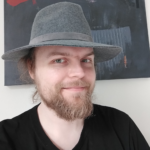
Jarno Alanko
HIIT Postdoctoral Fellow
Jarno Alanko received his PhD in 2020 at the University of Helsinki under the supervision of Veli Mäkinen. During 2020-2022, he worked as a post-doctoral researcher with professor Travis Gagie at Dalhousie University and professor Keijo Heljanko at the University of Helsinki.
Alanko’s work focuses on compact data structures for bioinformatics applications. Research highlights include the generalization of the concept of tunneling to Wheeler graphs [1] (Capocelli prize at DCC 2019), an optimal solution to the repeat-free minimum spectrum-preserving string set problem [2] (Best paper award at WABI 2022), and introduction of the concept of the Spectral Burrows-Wheeler transform for succinct indexing of k-mer spectra [3] (Best paper award at ACDA 2023).
Alanko is also the lead developer in the Themisto project [4] to build pseudoalignment index structures scalable to hundreds of thousands of bacterial genomes. The Themisto pseudoaligner has been used to develop bacterial genomic epidemiology with mixed samples and to study the pathogen competition in neonatal gut colonisation.
Sample of publications
[1] Alanko, Jarno, et al. “Tunneling on wheeler graphs.” 2019 Data Compression Conference (DCC). IEEE, 2019.
[2] Schmidt, Sebastian, and Jarno Alanko. “Eulertigs: Minimum Plain Text Representation of k-mer Sets Without Repetitions in Linear Time.” Workshop on Algorithms in Bioinformatics. Schloss Dagstuhl-Leibniz-Zentrum für Informatik, 2022.
[3] Alanko, Jarno N., Simon J. Puglisi, and Jaakko Vuohtoniemi. “Small Searchable k-Spectra via Subset Rank Queries on the Spectral Burrows-Wheeler Transform.” SIAM Conference on Applied and Computational Discrete Algorithms (ACDA23). Society for Industrial and Applied Mathematics, 2023.
[4] Alanko, Jarno N., et al. “Themisto: a scalable colored k-mer index for sensitive pseudoalignment against hundreds of thousands of bacterial genomes.” to appear in Bioinformatics (2023).

Melissa Antonelli
HIIT Postdoctoral Fellow
Melissa received her Ph.D. in Computer Science and Engineering in 2023 at the University of Bologna, where she was part of the FOCUS group. Her doctoral research focused on logical foundations of randomised computation and was supervised by Ugo Dal Lago and co-supervised by Paolo Pistone. She currently works as a post-doctoral researcher at HIIT, in the focus area Foundations of Computing.
Broadly speaking, Melissa’s research concerns interactions between logic and theoretical computer science, with a special attention to proof theory, modal logic and computational complexity theory. At the moment, she is working on the (logical and implicit) characterizations of probabilistic and circuit complexity classes. Her research is supervised by Mikko Koivisto and Juha Kontinen, and is conducted in collaboration with Arnaud Durand.
Sample of publications
[1] M. Antonelli, U. Dal Lago, P. Pistone, “Towards Logical Foundations for Probabilistic Computation“, Annals of Pure and Applied Logic, 2023.
[2] M. Antonelli, U. Dal Lago, P. Pistone, “On Counting Propositional Logic and Wagner’s Hierarchy“, Theoretical Computer Science, 966/C, 2023.
[3] M. Antonelli, U. Dal Lago, P. Pistone, “Curry and Howard Meet Borel“, Proc. LICS ’22, 2022, pp. 1-13.
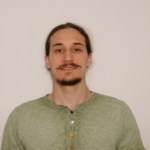
Massimo Equi
HIIT Postdoctoral Fellow
Dr. Massimo Equi obtained his master’s degree from the University of Pisa (Italy) in 2018, after which he moved to Finland, where he received his PhD from the University of Helsinki in 2022, under the supervision of Professor Veli Mäkinen and Associate Professor Alexandru Tomescu. He shortly visited the university of Pisa in 2022, where he has an active collaboration with Professor Roberto Grossi that carries on since the master studies. In 2022, he joined the research group of Professor Jukka Nurminen at the University of Helsinki as a HIIT postdoctoral researcher.
Massimo’s research interests include algorithms, data structures, complexity theory and quantum computing. Massimo studied the complexity of certain polynomial problems that feature theoretical hurdles in finding efficient algorithms, and proposed effective solutions for special cases.
A core problem of Massimo’s research is the one of aligning sequences of characters against graphs, which is relevant in various application fields such as bioinformatics, graph databases and network analysis. Massimo’s works prove that such a problem is inherently quadratic [1,2], but also provide special classes of graphs for which this is not the case [2,3]. Currently, Massimo’s interests have shifted towards quantum computing, with the goal of understanding how the performance of algorithms can be improved in this alternative model of computation.
In 2020 and 2021, Massimo has been a teaching assistant for the master-degree course Algorithms in Genome Analysis, held by Professor Veli Mäkinen. In the fall of 2022, Massimo has been an advisor for bachelor’s theses. He also participates in the organisation of events aimed at the dissemination of quantum computing.
Sample of publications
[1] Massimo Equi, Roberto Grossi, Veli Mäkinen, Alexandru I. Tomescu. On the Complexity of String Matching for Graphs. International Colloquium on Automata, Languages, and Programming (ICALP) 2019.
[2] Massimo Equi, Veli Mäkinen, Alexandru I. Tomescu. Graphs Cannot Be Indexed in Polynomial Time for Sub-quadratic Time String Matching, Unless SETH Fails. International Conference on Current Trends in Theory and Practice of Computer Science (SOFSEM) 2021.
[3] Veli Mäkinen, Bastien Cazaux, Massimo Equi, Tuukka Norri, Alexandru I. Tomescu. Linear Time Construction of Indexable Founder Block Graphs. International Workshop on Algorithms in Bioinformatics (WABI) 2020.
[4] Massimo Equi, Tuukka Norri, Jarno Alanko, Bastien Cazaux, Alexandru I. Tomescu, Veli Mäkinen. Algorithms and Complexity on Indexing Elastic Founder Graphs. International Symposium on Algorithms and Computation (ISAAC) 2021.
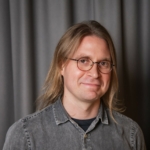
Tuomas Hakoniemi
HIIT Postdoctoral Fellow
Tuomas Hakoniemi received his PhD in 2022 from Universitat Politècnica de Catalunya under the supervision of Prof. Albert Atserias. After graduation he worked as a postdoctoral researcher in the research group of Prof. Iddo Tzameret at Imperial College London. Since June 2023 Hakoniemi has worked as a HIIT postdoctoral fellow at the University of Helsinki under the supervision of Prof. Mikko Koivisto.
Hakoniemi’s research interests lie in the intersection of theoretical computer science and mathematical logic. He is interested in the limits of models of computation and methods of reasoning and the interplay between the two. Much of his work has focused on the proof complexity of various algebraic proof systems.
Sample of publications:
[1] Govindasamy, N., Hakoniemi, T., & Tzameret, I. (2022). Simple Hard Instances for Low-Depth Algebraic Proofs. In Proceedings – 2022 IEEE 63rd Annual Symposium on Foundations of Computer Science, FOCS 2022 (pp. 188-199). (Proceedings – Annual IEEE Symposium on Foundations of Computer Science, FOCS; Vol. 2022-October). IEEE Computer Society. https://doi.org/10.1109/FOCS54457.2022.00025
[2] Hakoniemi, T. (2020). Feasible Interpolation for Polynomial Calculus and Sums-of-Squares. In A. Czumaj, A. Dawar, & E. Merelli (Eds.), 47th International Colloquium on Automata, Languages, and Programming, ICALP 2020 [63] (Leibniz International Proceedings in Informatics, LIPIcs; Vol. 168). Schloss Dagstuhl- Leibniz-Zentrum fur Informatik GmbH, Dagstuhl Publishing. https://doi.org/10.4230/LIPIcs.ICALP.2020.63
[3] Atserias, A., & Hakoniemi, T. (2019). Size-degree trade-offs for Sums-of-Squares and Positivstellensatz proofs. In A. Shpilka (Ed.), 34th Computational Complexity Conference, CCC 2019 (Leibniz International Proceedings in Informatics, LIPIcs; Vol. 137). Schloss Dagstuhl- Leibniz-Zentrum fur Informatik GmbH, Dagstuhl Publishing. https://doi.org/10.4230/LIPIcs.CCC.2019.24

Juho Hirvonen
HIIT Research Fellow
Juho Hirvonen received his doctorate from Aalto University in 2016, after which he was a postdoctoral researcher at the IRIF research institute at the University Paris Diderot, and the University of Freiburg. He was an Academy of Finland Postdoctoral Researcher, and is currently an HIIT Research Fellow at Aalto University.
His current research is about building an interdisciplinary connection between distributed computing and game theory: How hardness of distributed computation limits strategic behaviour, and how distributed algorithms can be used as building blocks in mechanism design. Dr. Hirvonen’s previous research has been about the theory of distributed computing, and in particular impossibility results: For example, their team received the best paper award at the IEEE Symposium on Foundations of Computing in 2019 for proving new impossibility results for maximal matching and maximal independent set.
Recent publications and manuscripts:
Juho Hirvonen, Laura Schmid, Krishnendu Chatterjee, and Stefan Schmid: Classifying Convergence Complexity of Nash Equilibria in Graphical Games Using Distributed Computing Theory. Submitted for publication. https://arxiv.org/abs/2102.13457
In this work we show that Nash equilibria of graphical games (games on networks) as computational problems are studied in distributed computing. We use this connection to analyse various graphical games, implying different convergence behaviour among them.
Alkida Balliu, Sebastian Brandt, Juho Hirvonen, Dennis Olivetti, Mikaël Rabie, Jukka Suomela: Lower Bounds for Maximal Matchings and Maximal Independent Sets. J. ACM 68(5), 2021.
Alkida Balliu, Sebastian Brandt, Juho Hirvonen, Dennis Olivetti, Mikaël Rabie, Jukka Suomela: Lower Bounds for Maximal Matchings and Maximal Independent Sets. FOCS 2019. (Best paper award).
We show that the locality (measure of how far information has to travel in a distributed system in order to solve a given problem) of maximal matching (and maximal independent set) is Omega(Delta), where Delta is the maximum degree of the input network. This is tight: it matches the locality of existing algorithms. We use the so-called round elimination technique that we have developed to prove this.
Alkida Balliu, Juho Hirvonen, Darya Melnyk, Dennis Olivetti, Joel Rybicki, Jukka Suomela: Local Mending. SIROCCO 2022.
We establish a locality measure for the hardness of mending a partial solution. We study the complexity landscape of this measure: how hard mending can be and how is it related to the hardness of solving the corresponding problem from scratch in the distributed setting.

Michael Klooss
HIIT Postdoctoral Fellow
Michael Klooss received his PhD in 2023 at the Karlsruhe Institute of Technology (KIT) where he was supervised by Jörn Müller-Quade and Andy Rupp.
He joined the cryptography research group of Chris Brzuska and Russell W.F. Lai at the department of computer science in 2023 as a postdoctoral researcher.
He is interested in theory and applications of cryptography, especially (efficient) proof systems and privacy-preserving protocols, e.g. anonymous credentials. One specific topic of interest is the use and understanding of rewinding as a proof technique in security proofs.
Sample of publications:
[1] Robin Berger, Brandon Broadnax, Michael Klooß, Jeremias Mechler, Jörn Müller-Quade, Astrid Ottenhues, Markus Raiber: Composable Long-Term Security with Rewinding. TCC 2023.
[2] T. Attema, S. Fehr, Michael Klooß, Michael Reichle: Fiat–Shamir Transformation of Multi-Round Interactive Proofs (Extended Version) Journal of Cryptology. Volume 36, article number 36, (2023)
[3] Carsten Baum, Lennart Braun, Cyprien Delpech de Saint Guilhem, Michael Klooß, Emmanuela Orsini, Lawrence Roy, Peter Scholl: Publicly Verifiable Zero-Knowledge and Post-Quantum Signatures from VOLE-in-the-Head. Advances in Cryptology – CRYPTO 2023.
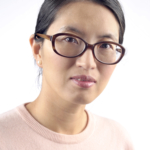
Xiaoli Liu
HIIT Postdoctoral Fellow
Dr. Xiaoli Liu received her PhD degree in mathematics from the University of Helsinki in December 2017. Her doctoral studies were supervised by Professor Mats Gyllenberg. After graduating she worked as a Postdoctoral researcher in the Biomimetics and Intelligent System Group (BISG) at the University of Oulu. She worked with Prof. Pan Hui’s group as a visiting scholar in 2019 and Polar Electro Oy with collaboration of University of Oulu in 2018. In November 2019, she joined the research group lead by Prof. Sasu Tarkoma in the Department of Computer Science at University of Helsinki as a Postdoctoral researcher. Dr. Xiaoli Liu currently works as a Postdoctoral fellow within Helsinki Institute for Information Technology (HIIT).
Dr. Xiaoli Liu’s research interests focus on distributed systems and edge intelligence, and her participated projects are related to IoT, federated learning, opportunistic learning, differential privacy, 5G and Augmented reality (AR). Dr. Xiaoli Liu has published 19 peer-reviewed journal and conference articles. She publishes papers in top venues, such as IEEE Internet Computing Magazine, IEEE Transactions on Intelligent Transportation Systems, and ACM Transactions on Sensor Networks.
Her recent research in 2021 contains providing solutions for scalable air quality monitoring by combing edge intelligence, 5G, and sensor calibration techniques [1]; utilizing context-aware AR together with 5G edge for path planning [2]; extending the previous Bayesian federated learning research work to have a model cluster instead of assuming a global model; opportunistic learning for air quality monitoring; and proving the feasibility of putting independent Component Analysis (ICA) under the distributed setting. Meanwhile, she also works for two survey papers: outdoor low-cost sensor and sensor calibration for air quality monitoring [3] and COVID-19 in Public Transportation: Transmission Risk, Mitigation and Prevention.
She is actively involved in funding application, workshop organizing, and teaching in 2021, for example, the participated project application “NSF joint call with the collaboration of Yale University” submitted in April 2021 has got the positive decision. She is the course advisor for bachelor thesis in the spring semester and co-teaching Advanced Course in Deep Learning (5cr) for in the autumn semester and she will be the main responsible teacher from 2022. Meanwhile, she serves as a board member of the Junior Faculty Club in University of Helsinki to provides support for PhD students and Postdoctoral researchers
Sample of publications:
[1] Jacky Cao, Hassan Mehmood, Xiaoli Liu, Sasu Tarkoma, Ekaterina Gilman, Xiang Su. Fighting Pandemics with Augmented Reality and Smart Sensing-based Social Distancing. IEEE Computer Graphics and Applications 43, no. 1 (2023):65-75.
[2] Jacky Cao, Xiaoli Liu, Xiang Su, Jonas Eilertsen Hædahl, Thomas Berg Fjellestad, Donjete Haziri, André Hoang-An Vu, Jari Koskiaho, Satu Maaria Karjalainen, Anna-Kaisa Ronkanen, Sasu Tarkoma, Pan Hui, “Head-mounted display-based augmented reality for water quality visualisation”, Water Science and Engineering (2023).
[3] Nils Chr. Stenseth, Rudolf Schlatte, Xiaoli Liu, Roger Pielke, Ruiyun Li, Bin Chen, Ottar N. Bjornstad, Dimitri Kusnezov, George F. Gao, Christophe Fraser, Jason D. Whittington, Yuqi Bai, Ke Deng, Peng Gong, Dabo Guan, Yixiong Xiao, Bing Xu, Einar Broch Johnsen. “How to avoid a local epidemic becoming a global pandemic.” Proceedings of the National Academy of Sciences of the United States of America 120, no. 10 (2023).
[4] Jacky Cao, Kit-Yung Lam, Lik-Hang Lee, Xiaoli Liu, Pan Hui, Xiang Su. “Mobile Augmented Reality: User Interfaces, Frameworks, and Intelligence.” ACM Computing Surveys 55, no. 9 (2023).
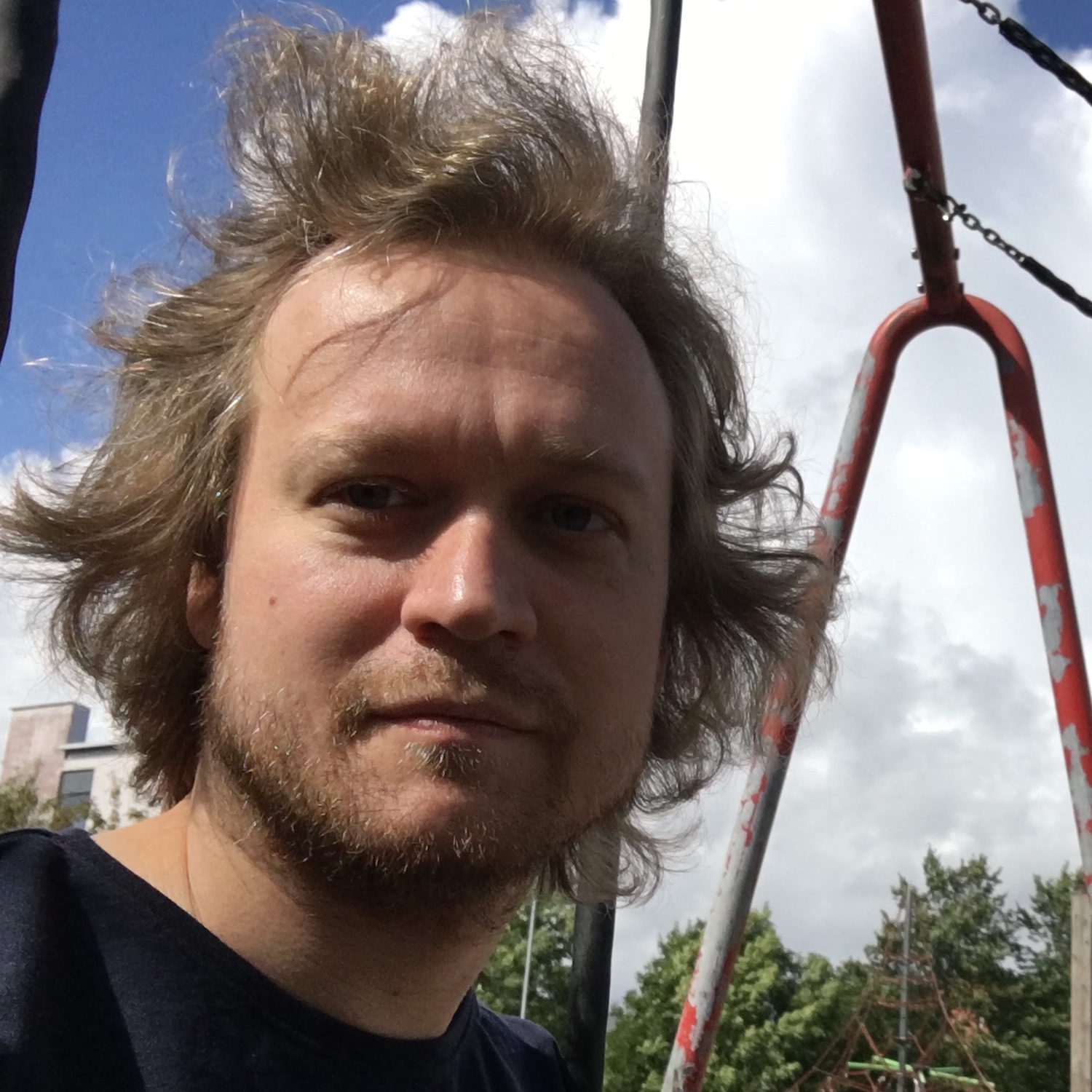
Alan Medlar
HIIT Research Fellow
Alan Medlar is a member of the Exploratory Search and Personalization (ESP) research group lead by Prof. Dorota Głowacka. Alan has undergraduate degrees in Computer Science from University College London (UCL), UK and in 2012 was awarded a PhD in Bioinformatics and Genetics from UCL Medical School. After arriving in Finland, he worked as a postdoctoral researcher in Dr Ari Löytynoja’s Evolutionary Sequence Analysis group and in Prof. Liisa Holm’s Bioinformatics group. In 2019, he moved to the Department of Computer Science where he is currently a university researcher and HIIT research fellow.
Alan’s recent research has included work on recommender systems evaluation [1], novel interfaces for exploratory search of GANs [2], and investigating how to use video editing techniques to enhance navigation in virtual reality [3].
Sample of publications:
[1] Y. Liu, A. Medlar, D. Głowacka. What We Evaluate When We Evaluate Recommender Systems: Understanding Recommender Systems’ Performance using Item Response Theory. Proceedings of the 17th ACM Conference on Recommender Systems (RecSys) 2023.
[2] Y. Liu, A. Medlar, D. Głowacka. Sample, Nudge and Rank: Exploiting Interpretable GAN Controls for Exploratory Search. Proceedings of the 29th ACM Conference on Intelligent User Interfaces (IUI) 2024 (to appear).
[3] A. Medlar, Mari Lehtikari, D. Głowacka. Behind the Scenes: Adapting Cinematography and Editing Concepts to Navigation in Virtual Reality. Proceedings of the CHI Conference on Human Factors in Computing Systems (CHI) 2024 (to appear).

Augusto Modanese
HIIT Postdoctoral Fellow
Augusto Modanese obtained his PhD degree from the Karlsruhe Institute of Technology (KIT) in 2022. During his PhD studies he was supervised by Thomas Worsch and Jörn Müller-Quade. In 2023 he joined Jukka Suomela’s Distributed Algorithms research group at Aalto University as a postdoctoral fellow.
In the main line of research for his dissertation, Augusto studied sublinear-time models of cellular automata, primarily from the perspective of complexity theory [1,2,3]. Together with Thomas Worsch, he also fully determined the complexity of predicting the behavior of a particular model of two-dimensional cellular automata called fungal automata, which is a spin-off on the classical sandpile automaton model of Bak, Tang, and Wiesenfeld [4].
Currently Augusto’s research interests are in local models of computation in general as well as possible connections to modern complexity theory. On the teaching side, he is serving as an advisor for bachelor’s theses.
Sample of publications:
[1] Augusto Modanese: Sublinear-Time Language Recognition and Decision by One-Dimensional Cellular Automata. Int. J. Found. Comput. Sci. 32(6): 713-731 (2021)
[2] Augusto Modanese: Lower Bounds and Hardness Magnification for Sublinear-Time Shrinking Cellular Automata. CSR 2021: 296-320
[3] Augusto Modanese: Sublinear-Time Probabilistic Cellular Automata. 40th International Symposium on Theoretical Aspects of Computer Science (STACS 2023)
[4] Augusto Modanese, Thomas Worsch: Embedding Arbitrary Boolean Circuits into Fungal Automata. LATIN 2022: 393-408
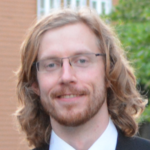
Hans Moen
HIIT Postdoctoral Fellow
Hans Moen obtained his PhD degree in Information Technology in 2016. This was a joint degree (cotutelle) between the Norwegian University of Science and Technology and the University of Turku. Afterwards he has worked as a postdoc researcher in the TurkuNLP group at the University of Turku, Department of Computing. Since 2018 he has been funded by the personal postdoc funding from the Academy of Finland. He now works as a HIIT Research Fellow in the Machine Learning for Health (ML4H) group and the Probabilistic Machine Learning (PML) group at Aalto University. He is primarily working in projects focusing on the data from the Hospital District of Helsinki and Uusimaa (HUS), Turku University Hospital (TYKS), and the FinRegistry project.
His main research field is natural language processing (NLP), with a special focus on clinical text (clinical NLP) and other health-related data. A central focus of his research is in utilizing machine learning and language technology to support health care personnel and other users in managing the information documented and stored in electronic health records. The aim is to explore new methods and applications that can ultimately help save time, effort, and resources, to improve the quality of care, and enable new ways of interacting with and generating such information. This work encompasses tasks like free-text search, information classification and extraction, and automatic summarization, where computational semantics and language representations are central focus areas. This work includes the use of (deep) neural networks for textual data, such as recurrent neural networks and transformer-based neural networks.
Moen has been an active member and coordinator in the IKITIK consortium at the University of Turku since 2015. He had a research visit to the Department of Computer and Systems Sciences at Stockholm University in 2021. He has been involved in organizing the Nordic Conference on Computational Linguistics (NoDaLiDa) in 2019 and 2021. He is an active member of the Student and Emerging Professionals Special Interest Group under the International Medical Informatics Association (IMIA SEP SIG), who received the IMIA working group of the year award in 2019 and 2020. He is a regular referee in the “Natural Language Processing” section of the annual IMIA Yearbook.
Sample of publications:
[1] Veronica Barcelona, Danielle Scharp, Betina R. Idnay, Hans Moen, Dena Goffman, Kenrick Cato, Maxim Topaz. A qualitative analysis of stigmatizing language in birth admission clinical notes. Nursing Inquiry Vol. 30, no. 3 (2023).
[2] Ali Zolnour, Christina E. Eldredge, Anthony Faiola, Yadollah Yaghoobzadeh, Masoud Khani, Doreen Foy, Maxim Topaz, Hadi Kharrazi, Kin Wah Fung, Paul Fontelo, Anahita Davoudi, Azade Tabaie, Scott A. Breitinger, Tyler S. Oesterle, Masoud Rouhizadeh, Zahra Zonnor, Hans Moen, Timothy B. Patrick, Maryam Zolnoori. A risk identification model for detection of patients at risk of antidepressant discontinuation. Front. Artif. Intell., Volume 6 – 2023
[3] Satu Poikajärvi, Laura-Maria Peltonen, Eriikka Siirala, Juho Heimonen, Hans Moen, Sanna Salanterä, Kristiina Junttila. Exploring the Documentation of Delirium in Patients After Cardiac Surgery : A Retrospective Patient Record Study. Computers, Informatics, Nursing 42(1):p 27-34. 2023

Shreyas Pai
HIIT Postdoctoral Fellow
Shreyas Pai received his PhD in Computer Science at The University of Iowa under the supervision of Prof. Sriram V. Pemmaraju in May 2021. After graduating, he spent two years as a postdoctoral researcher in the Theory group at Aalto University hosted by Prof. Jara Uitto. Since August 2023, he is continuing as a HIIT postdoctoral fellow under the supervision of Prof. Jara Uitto.
His research interests are primarily in Theory of Distributed and Parallel Computing, more specifically in Distributed Graph Algorithms and Algorithms for Large Data. He is also more generally interested in topics in Theoretical Computer Science like Communication Complexity and Combinatorial Optimization.
Sample of publications
[1] Alkida Balliu, Janne H. Korhonen, Fabian Kuhn, Henrik Lievonen, Dennis Olivetti, Shreyas Pai, Ami Paz, Joel Rybicki, Stefan Schmid, Jan Studený, Jukka Suomela, and Jara Uitto. Sinkless orientation made simple. Symposium on Simplicity in Algorithms, SOSA 2023, pages 175–191
[2] Christoph Grunau, Rustam Latypov, Yannic Maus, Shreyas Pai, Jara Uitto. Conditionally Optimal Parallel Coloring of Forests. International Symposium on Distributed Computing, DISC 2023.
[3] Chetan Gupta, Rustam Latypov, Yannic Maus, Shreyas Pai, Simo Särkkä, Jan Studený, Jukka Suomela, Jara Uitto, Hossein Vahidi. Fast Dynamic Programming in Trees in the MPC Model. Proceedings of the 35th ACM Symposium on Parallelism in Algorithms and Architectures, SPAA 2023.
[4] Mélanie Cambus, Fabian Kuhn, Shreyas Pai, Jara Uitto. Time and Space Optimal Massively Parallel Algorithm for the 2-Ruling Set Problem. 37th International Symposium on Distributed Computing, DISC 2023.

Taneli Pusa
HIIT Postdoctoral Fellow
Dr. Taneli Pusa obtained his Master’s degree in Applied Mathmatics from the University of Helsinki in 2015 and his PhD in Bioinformatics from the University of Lyon in 2019. During his PhD he was co-supervised by Marie-France Sagot and Alberto Marchetti-Spaccamela. He completed a postdoc at the Luxembourg Centre for Systems Biomedicine (LCSB) at the University of Luxembourg in 2020. He joined Juho Rousu’s Kernel Methods, Pattern Analysis and Computational Biology (KEPACO) group in May 2021 as a postdoctoral fellow.
Taneli’s research interests focus on the combination of mathematics, computer science, and biology. In his research on metabolic networks, he focuses on their integration with ‘omics data. Currently, he is collaborating with the Suomalainen-Wartiovaara lab at the University of Helsinki which studies different health related factors and their possible influence metabolism. Concurrently, Taneli contributes to the COBREXA software project which is a toolbox for next-generation metabolic modelling.
Sample of publications:
[1] Mariana Ferrarini, Avantika Lal, Rita Rebollo, Andreas Gruber, Andrea Guarracino, Itziar Martinez Gonzalez, Taylor Floyd, Daniel Siqueira de Oliveira, Justin Shanklin, Ethan Beausoleil, Taneli Pusa, Brett Pickett, Vanessa Aguiar-Pulido, Genome-wide bioinformatic analyses predict key host and viral factors in SARS-CoV-2 pathogenesis, Communications biology, 2021
[2] Miroslav Kratochvíl, Laurent Heirendt, St Elmo Wilken, Taneli Pusa, Sylvain Arreckx, Alberto Noronha, Marvin van Aalst, Venkata P Satagopam, Oliver Ebenhöh, Reinhard Schneider, Christophe Trefois, Wei Gu, COBREXA.jl: constraint-based reconstruction and exascale analysis, Bioinformatics, 2021
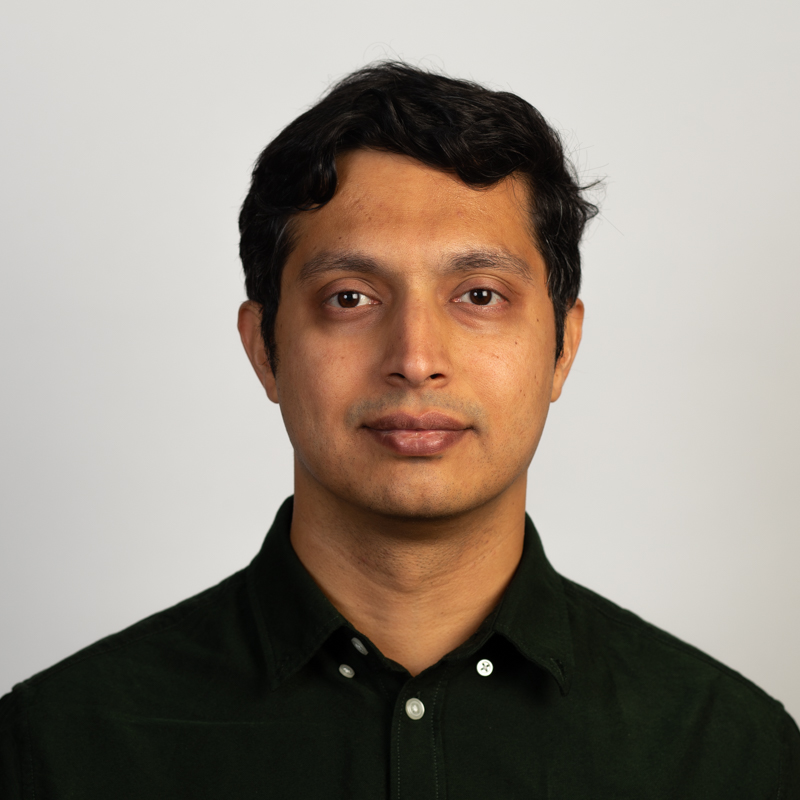
Ashwin Rao
HIIT Postdoctoral Fellow
Ashwin Rao obtained his master’s degree in Information Technology in 2009 from the Indian Institute of Technology Delhi, and his PhD in Informatique (Computer Science) in 2013 (thesis defended in 2013 at Inria and certificate awarded in 2015) from University of Nice Sophia Antipolis, France. His doctoral studies were supervised by Professor Walid Dabbous and Professor Arnaud Legout. After graduating he arrived in Finland in July 2014 and has been a post-doctoral researcher since. He received the title of Docent from the University of Helsinki in September 2020.
He is actively teaching at the university, for example, co-supervising Bachelor’s, Master’s, and PhD theses. As of April 2021, he has co-supervised 1 PhD student, 10 Masters Students, and co-hosted research visits of 2 PhD students. More information about his research activities can be found on his webpage.
His research interests are in the area of distributed systems and networking, and his projects have touched mobile networks, video streaming, peer-to-peer communication, wireless networks, privacy and security issues, and recently operating system architectures. His research works are heavily systems-oriented, and they involve building systems for conducting large-scale measurement studies, analyzing the results, and addressing the issues identified.
He received the title of Docent in September 2020. He helped organize two webinars on Edge Intelligence which had an audience of more than 50 people. He co-authored two research proposals, a) IDEA-MILL that received a 3-year funding from the Academy of Finland with Prof. Sasu Tarkoma, and b) Lean6G that received a 3 year funding with Prof. Sasu Tarkoma and Prof. Leandros (Yale University). In 2021, he also taught one Masters level courses: Networked Systems and Services (5 cr) and 1 student submitted a PhD thesis under his co-supervision.
Sample of publications:
[1] Amogh Pradeep, Álvaro Feal, Julien Gamba, Ashwin Rao, Martina Lindorfer, Narseo Vallina-Rodriguez, David Choffnes. Not Your Average App: A Large-scale Privacy Analysis of Android Browsers. Proceedings on Privacy Enhancing Technologies. (2023): 29-46.
[2] Pekka Enberg, Sasu Tarkoma, Ashwin Rao, Towards Database and Serverless Runtime Co-Design, Proceedings of the on CoNEXT Student Workshop 2023.
[3] Ashwin Rao, Transcribing Educational Videos Using Whisper: A preliminary study on using AI for transcribing educational videos, Conference on Deployable AI (2023).
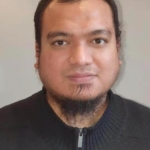
Martha Arbayani Zaidan
HIIT Research Fellow
Martha Arbayani Zaidan obtained his Master’s degree in Control Systems in 2009 and his Ph.D. in Automatic Control and Systems Engineering in 2014, both from the University of Sheffield, UK. His doctoral study was conducted at Rolls-Royce University Technology Center for control and systems monitoring, supported by Rolls-Royce plc. He then worked as a Postdoctoral Research Associate (2014-2015) at Maryland University at College Park, US, and as a Postdoctoral Research Fellow (2015-2017) at Aalto University, Finland. From 2017, he has joined Institute for Atmospheric and Earth System Research (INAR) at University of Helsinki. He received the title of Docent in Atmospheric and Environmental Data Science in 2020. In between 2021 and mid-2022, Dr. Zaidan served INAR as a Research Associate Professor at Nanjing University, China. On July 2022, he has returned to University of Helsinki to work as a HIIT Research Fellow funded by HIIT and INAR. In his current role, he works on developing data science and machine learning methods for various applications in sensing systems, atmospheric and environmental sciences.
Dr. Zaidan’s general research interests are in applied artificial Intelligence and machine learning (e.g., fuzzy logic, artificial neural networks and deep learning, Bayesian techniques, Recursive Bayesian estimations, Kernel machines, sampling methods, inference approximations, self-organizing maps, etc.), health monitoring technologies (e.g., feature extractions, diagnostics, prognostics), intelligent control systems and systems identification. The applications include various engineering and scientifical systems including bio-medical robotics, twin rotor dynamics, aircraft gas turbine engines, applied physics, geoinformatics, atmospheric and environmental sciences as well as other intelligent engineering systems.
In 2022, Dr. Zaidan publications are mainly in the topics of automating scientifical data analysis, intelligent sensor calibration and virtual sensors. In his current role, Dr. Zaidan also delivers lectures in the courses of Statistical Analysis for Environmental Field Measurements and Environmental Data Sciences. He has also participated actively in various research projects and thesis supervision for Ph.D. and summer intern students.
Sample of publications:
[1] Naser Hossein Motlagh, Martha Arbayani Zaidan, Lauri Loven, Pak Lun Fung, Tuomo Hänninen, Roberto Morabito, Petteri Nurmi, Sasu Tarkoma. Digital Twins for Smart Spaces – Beyond IoT Analytics. IEEE internet of things journal (2023)
[2] Naser Hossein Motlagh, Martha Arbayani Zaidan, Pak Lun Fung, Andrew Rebeiro-Hargrave, Matti Irjala, Tareq Hussein, Tuukka Petäjä, Petteri Nurmi, Sasu Tarkoma. Feasibility of Air Quality Monitoring from Transport Vehicles. In EnvSys ’23: Proceedings of the 1st International Workshop on Advances in Environmental Sensing Systems for Smart Cities (2023): 13-18.
[3]Martha Arbayani Zaidan, Naser Hossein Motlagh, Pak Lun Fung, Abedalaziz S. Khalaf, Yutaka Matsumi, Aijun Ding, Sasu Tarkoma, Tuukka Petäjä, Markku Kulmala, Tareq Hussein. Intelligent Air Pollution Sensors Calibration for Extreme Events and Drifts Monitoring. IEEE Transactions on Industrial Informatics, 19(2), 1366-1379. (2023)